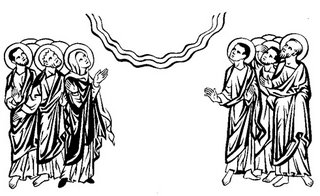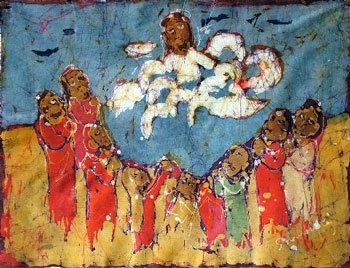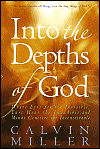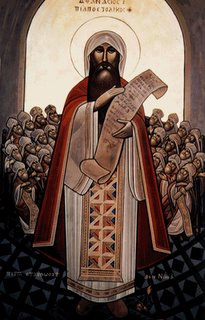
We’ve been talking a lot about daily prayer recently, and this morning I thought it may be helpful to articulate why the Psalms have become the backbone, so to speak, of traditional Evening and Morning Prayer in the Church. There are at least three good reasons why we regularly include and pray the Psalms in our daily prayers:
-- The Psalms place us within the community of faith.
-- The Psalms provide a profound and proper understanding of the human condition.
-- The Psalms let us listen to the heartbeat and voice of God.
-- The Lord Jesus Christ prays for us in the Psalms.
This morning many of us prayed Psalm 47, one of the psalms for Thursday of Eastertide in The Daily Prayer of the Church. It’s a typical, but short, psalm of praise, ten verses long:
1 Clap your hands, all you peoples;* shout to God with a cry of joy.
2 For the LORD most high is to be feared;* he is the great King over all the earth!
3 He subdues the peoples under us,* and the nations under our feet.peoples under our feet.
4 He chooses our inheritance for us,* the pride of Jacob whom he loves.
5 God has gone up with a shout,* the LORD with the sound of the ram’s horn.
6 Sing praises to God, sing praises;* sing praises to our King, sing praises.
7 For God is King of all the earth;* sing praises with all your skill.
8 God reigns over the nations;* God sits upon his holy throne.
9 The nobles of the people have gathered together* with the people of the God of Abraham.
10. The rulers of the earth belong to God,* and he is highly exalted
As I prayed, it became apparent that the Holy Spirit was encouraging everyone to express themselves with cries of joy, clapping our hands; the Spirit was encouraging us to sing praises and worship the LORD. Although I prayed this psalm alone earlier this morning, the psalm reminded me that others (“all you peoples”) were praying with me. Some, somewhere, were praying with Psalm 47. Others, of course, were praying with other psalms, or without psalms. The important awareness, however, was that I was part of the community of faith continually giving praise to God. Praying the psalms thus assures me that I am never alone. Lots of others are with me: pastors, laywomen and laymen, bishops, monks and nuns, evangelists, teachers--all kinds and sorts of Christiains in Africa, South America, Russia, and Iraq. I’m always, so to speak, “in church.” The Psalms always place us within the community of faith.
As I entered the psalm, the Spirit told why we sing, clap, praise, and worship the LORD. He is “Most High,” “the great King over all the earth,” who “reigns over the nations.” Over and again, the psalms repeats that announcement, that Gospel. “The rulers of the earth belong to God, and he is highly exalted.”
After each psalm my prayer book, The Daily Prayer of the Church, encourages “silence for meditation.” I therefore sit for a few minutes and ponder over what I have sung. To help me ponder, the prayerbook provides an antiphon at the beginning and end of each psalm. This antiphon, usually a verse from the psalm itself, serves as a frame to call attention to something special inside the psalm. The antiphon often changes from time to time, from season to season. Here’s the antiphon for today’s Psalm 47:
God is king of all the earth;*
Sing praises with all your skill, alleluia.
As I pondered the psalm’s antiphon and proclamation, I thought about its comforting message. Although I am a conservative Christian theologically, I’m something of a liberal politically, and frankly, I worry a good bit about the direction our nation is taking (I won’t get into that now). I desperately need the Word of God telling me that in spite of everything, no matter how bad it looks, God is “king of all the earth.” For that reason I appreciated the reassuring announcement that God is above all presidents, all dictators, all governments, all political craziness, all national powers, all terrors. The God of Abraham, who works his mercy in, with, under, and above all historical movements, is to be praised.
After singing such a psalm, The Daily Prayer of the Church provides a summing-up prayer like this one for Psalm 47:
Lord Jesus, the dominion of the universe is yours, for you have ascended on high and are seated on the throne prepared for you by the Father: Gather all peoples into your Church and make them a holy nation, a royal priesthood, your chosen heritage, to praise and adore your divine majesty now and for ever.
Not all of the psalms are as "easy" to sing and theologically transparent as Psalm 47. In the days to come, when I arrive at more "difficult" psalms, I hope to share my pondering over those psalms too. In the meantime, if you pray with the psalms, share with us your insights.













